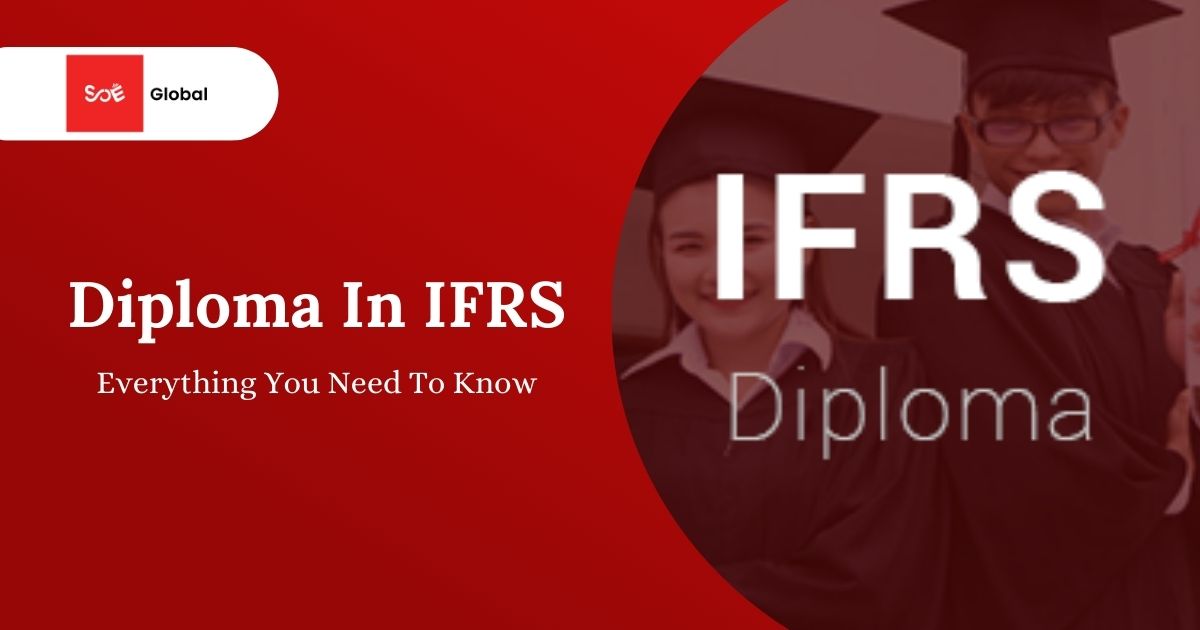In our modern, interconnected business world, understanding and using International Financial Reporting Standards (IFRS) is increasingly important. Accountants, finance professionals, or auditors wanting to further their careers could greatly benefit from an IFRS diploma.
IFRS Skills In-Demand:
Currently, more than 113 countries mandate or allow IFRS for publicly listed companies, and several others are on their way to implementing it [Source: ACCA Global]. A 2023 Robert Half International research revealed a hard truth: 78% of CFOs have a hard time finding professionals skilled in IFRS [Source: Robert Half International]. Having an IFRS diploma could mean a pay raise of 10-15% for those in accounting and finance. [Source: Indeed]
Have A Query About ACCA, Book a Free Consultation Now!
This diploma in ifrs complete guide gives you detailed information on the IFRS diploma, helping you make a clear choice about this impactful certificate.
What’s an IFRS Diploma?
An IFRS diploma is a focused program that provides a deep understanding of the International Financial Reporting Standards. The International Accounting Standards Board (IASB) developed these standards to give clear and uniform guidelines for financial statements. We provide guide on everything about diploma in ifrs.
Curriculum Overview:
The curriculum of a Diploma in IFRS program typically covers the following core subjects:
- Introduction to IFRS
- Framework for Financial Reporting
- Presentation of Financial Statements
- Revenue Recognition
- Financial Instruments
- Consolidated Financial Statements
- Accounting for Leases
- Impairment of Assets
- Fair Value Measurement
- Disclosure Requirements
Career Prospects:
Earning a Diploma in IFRS opens doors to several job possibilities in the world of accounting and finance, such as:
- Financial Analyst
- Auditor
- Tax Consultant
- Financial Controller
- Risk Manager
- Compliance Officer
- Corporate Treasurer
- Investment Analyst
Why You’d Want an IFRS Diploma:
1. Better Job Opportunities: An IFRS diploma proves you have a speciality skill in high demand, giving you an edge in the job market.
2. Better Pay: People who know about IFRS often earn more because of their specific skills and knowledge.
3. Opportunities Abroad: Many countries use IFRS, giving those certified in it more job options worldwide.
4. Improved Understanding of Finances: The course helps you to read and understand financial reports based on IFRS, helping you make good choices.
5. More Chances to Meet People: Doing a course in IFRS lets you network with others in your industry.
Who should look at getting a Diploma in IFRS?
This program can help many people, such as:
1. Finance Experts: Accountants, auditors, financial analysts, and others can improve their skills and job prospects.
2. Business Owners and Leaders: Knowing about IFRS helps owners and bosses make sense of financial reports and choose wisely.
3. New Graduates: A diploma in IFRS could give recent graduates a head start when looking for jobs, making them different from other candidates.
4. Professionals Wanting to Move Up: Those wishing to grow in their finance, accounting, or auditing careers may show dedication through this qualification, benefiting their professional growth.
What’s needed for a good IFRS Diploma program?
1. Accreditation: Make sure the program is validated by a recognized body. This ensures top quality and timely topics.
2. Stuff you learn: Check if the program teaches all necessary IFRS standards. It should include real-life cases and exercises too.
3. Flexibility: If you need to juggle work, school, and life, look for online or part-time choices.
4. Instructors’ Knowledge: Your teachers should really know everything about diploma in ifrs and have loads of experience.
Boosting your IFRS Diploma’s worth
Want to get the most out of your IFRS diploma? Try these tips:
1. Befriend classmates and teachers: Having contacts in the field can lead to fresh opportunities and helpful career advice.
2. Keep up-to-date on IFRS changes: Regularly read industry news and attend pertinent webinars and conferences to stay informed.
3. Go for more certifications: If it suits your career plans, look into other credentials like the CFA (Chartered Financial Analyst) or CMA (Certified Management Accountant).
4. Use what you learn at work: Find ways to apply your new IFRS knowledge in your job to show off your extra skills.
Making the Most of Your IFRS Diploma
Here are some potent tactics to get the most from your diploma in IFRS:
1. Connect with classmates and teachers: Cultivating relationships with knowledgeable individuals can lead to new prospects and offer strategic career advice.
2. Keep up with IFRS updates: Regularly read industry magazines and participate in webinars or conventions to keep your expertise on the dynamic standards updated.
3. Gain additional credentials: Look into extra qualifications that align with your career objectives, like the CFA (Charified Financial Analyst) or CMA (Certified Management Accountant) titles.
4. Use your learning at work: Look for ways to apply your IFRS talents on the job, showcasing the worth of your fresh skills.
Students who want to master global financial standards can rely on the superior education offered by the School of Excellence (SOE). SOE is dedicated to understanding every student’s distinctive needs and provides top-notch, focused coaching. Securing an IFRS diploma is highly beneficial for individuals hoping to elevate their roles in accounting, finance, or auditing. Mastering these worldwide standards can open thrilling career doors, boost your finance interpretation skills, and give you an advantage in the job-seeking arena. We hope our diploma in ifrs complete guide will help you gain insights.
